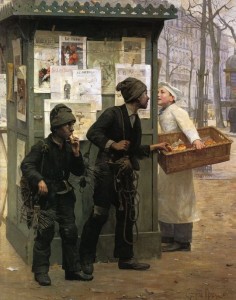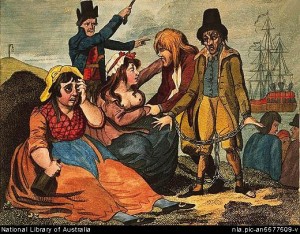Last night I finished the Work-in-Progress, Book 2 in the Scandalous Summerfields series, sent it off and now will await my editor’s feedback on it. Color me relieved!
When writing my books, I always need to stop and research period detail. Sometimes the research plays a big part in the books. Other times it is just a small piece that I want to get right.
Like, what happens when a minor character is unjustly sent to prison? How might his friends get him out?
 This character was unjustly convicted of theft and the punishment, I’d learned, was hanging. During the Regency, there were as many as 200 offenses punishable by hanging, even what we would consider minor ones, like shoplifting.
This character was unjustly convicted of theft and the punishment, I’d learned, was hanging. During the Regency, there were as many as 200 offenses punishable by hanging, even what we would consider minor ones, like shoplifting.
That did not mean every criminal offender was hanged. In reality only about 40% were.
One of the ways the offenders avoided hanging was to plead “benefit of clergy,” a once in a lifetime plea, which basically could be done by anyone who could read. They would, then, be incarcerated for a year. Other means to avoid hanging were convictions to lesser crimes, nullification of the offense, or “pious perjury,” meaning devaluing goods stolen to a value covered by a non-capital punishment.
 Another much used way of avoiding hanging was transportation. During the Regency, this meant transportation to Australia and Van Diemen’s Land (Tasmania). I wrote about the First Fleet a little while ago.
Another much used way of avoiding hanging was transportation. During the Regency, this meant transportation to Australia and Van Diemen’s Land (Tasmania). I wrote about the First Fleet a little while ago.
Several avoided hanging by the use of pardons, which were accomplished by letters petitioning the court. In pardons, the guilt or innocence of the convicted person was rarely the issue. The pardon was based on character evidence provided by the petitioner about the offender. Ironically, it mattered less how closely the petitioner knew the offender or even if he knew the offender at all. What mattered more was how influential the petitioner was. Officials liked knowing that men of influence and prestige were beholding to them. This option fit right in with my story.
What interesting research tidbit have you come across lately?
Book 1 of the Scandalous Summerfields series, Bound By Duty, will appear in bookstores March 17!

Thanks for the information, Diane! This may turn out to be useful for a future story.
Wow! That’s like almost half of the criminals in the gutter that got hanged. How come I never knew that? I’ll have to keep this as a reference then. Great research Diane.
Thanks, ki!!
Great research, O Divine One! And I am looking forward to the new book!
I’ve been doing research via Bill Haggart’s great class on Women at War (during the Regency.) I have a heroine in one book who followed the drum with her father and I had some questions about what provisions might have been made for her when he was killed at Waterloo.
And I have a hero in a novella who was left for dead in the streets of Badajoz and I wanted to know who would ID his body and how he might be buried, etc.
As always Bill was an amazing source of information.
I LOVE all of the things I learn when doing research!
Oh! And I have started work on my workshop for the Beau Monde Mini Conference England’s Got Talent – Regency Style : Music at Vauxhall Gardens.
I ordered two facsimiles or song books of songs performed at Vauxhall. Some of those songs are VERY NAUGHTY!
According to Bill Bryson, you could be hanged for impersonating an Egyptian in the streets.